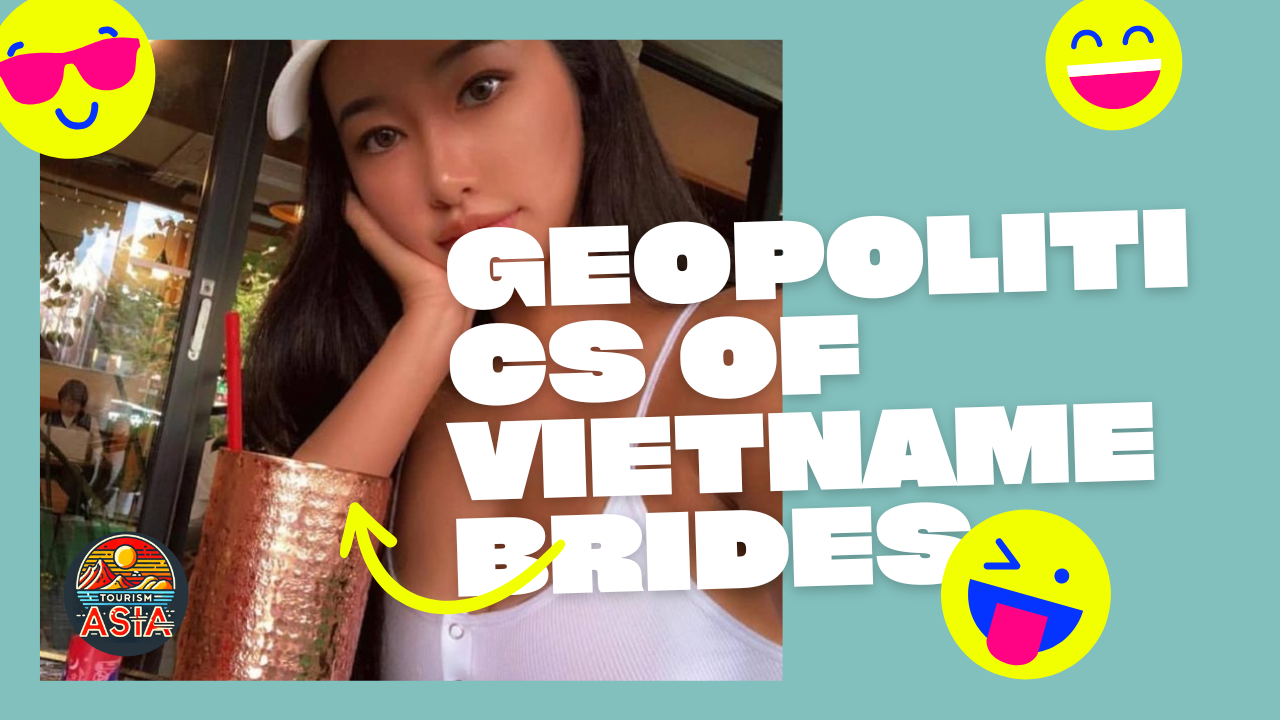The demand for Vietnamese brides needs to be situated within the broader context of mail order marriages, which often involve individuals from developing countries and those in more affluent nations. Differences in income levels, employment opportunities, and quality of life create situations where people seek partnerships that transcend national borders. For Vietnamese women, particularly from rural areas, the prospect of marriage to a foreign man can often be seen as a pathway to betterment, both for themselves and their families.
The Vietnamese mail order bride agencies cater to men in wealthier nations who may experience challenges in finding local partners or have particular attraction towards women from Southeast Asian countries. These agencies present Vietnam brides as desirable based on cultural and familial values, perceived deference, and traditional gender roles. This framing plays into global perceptions of an ‘Eastern’ femininity that moves toward appeasing broader Western ideals of a perfect spouse.
Vietnamese brides often move to countries like South Korea, Taiwan, and certain Western nations, creating a significant shift in migration flows, which also reflects economic factors at play. In many cases, the countries where Vietnamese women choose to marry, or are chosen to marry into, boast stronger economies than their own homeland. The disparities in economic opportunities that pressure labor migration as well as human trafficking also trickle into the institution of marriage, shaping decisions for those involved in Vietnam mail order brides arrangements.
Unpacking the Journey of the Vietnam Mail Order Bride
Marriage has long played a central role in Vietnamese society, rooted in family honor, multi-generational household structures, and social expectations. However, in the modern landscape, the image of the marriageable Vietnamese bride is increasingly shaped by global pressures. The path to formal union for some Vietnamese women now intersects with global matchmaking agencies, transforming marriage into what can sometimes feel like an economic transaction rather than a cultural tradition.
Vietnamese mail order brides come from various backgrounds, but a significant portion are from rural communities where economic prospects are limited. With agricultural jobs dwindling and urban migration providing only low-paying factory work, marrying a foreign man can be viewed as a legitimate step toward financial security. There’s a certain pragmatism in such arrangements: while love may be an ideal outcome, the marriage partner is largely expected to provide stability and a higher living standard.
Agencies that facilitate these unions market their services by promoting the stereotypical qualities attributed to Vietnam brides: viewed as family-oriented, obedient, and gentle women, appealing to the cultural values of countries with relatively traditional gender expectations. These weighty labels can both create opportunities and challenges for Vietnamese brides, with preconceived notions affecting their experience of marriage and integration into new societies.

The wedding process for Vietnamese mail order brides takes on sprawling complexity. When getting married in Vietnam, grooms often work through legally tangled paperwork while also encountering linguistic and cultural barriers. Despite these challenges, the allure of Vietnam brides for certain foreign men remains strong, driven in part by perceptions of cultural compatibility or financial disparity. For the brides themselves, the motivation rests largely on improving their living conditions, though family obligations often form a crucial factor in the decision to marry cross-nationally.
Relocation, once married, means confronting vastly different cultural practices, particularly in navigating modern workplaces, new family dynamics, and legal systems. The transition between life as a Vietnamese bride in her homeland and life as a wife in a foreign country can carry intense social and personal challenges. In some settings, there may even be expectations of complete cultural assimilation, which makes reintegration and identity negotiation particularly salient issues for the brides from Vietnam who move across borders.
Vietnam mail order brides often find themselves adjusting not only to new countries but to relationships built on mutual dependence, where economic security is an explicit component of the agreement. For many, marrying a foreign spouse seems like the clearest exit from financial hardship. The hope is that these marriages steer away from exploitation or misuse, but there have been instances indicating the need for greater protective mechanisms to ensure the safety and autonomy of both partners involved.
Framing these marriages solely as economic decisions risks robbing Vietnamese brides of their agency, but there’s no denying that financial concerns remain central to both parties involved in the exchange. Men, especially in countries with low birth rates or skewed gender ratios, look at Vietnamese brides as a solution to the challenge of securing a partner. On the flip side, Vietnamese women perceive foreign marriages as a route toward an elevated social and economic status.
Divorce rates, while not negligibly high, are also not uncommon among some Vietnamese women who marry foreign men through matchmaking agencies. In these cases, issues surrounding compatibility, cultural shock, and gender role expectations can lead to marital breakdowns. For Vietnamese brides, maneuvering the complex nature of foreign legal systems and achieving financial independence from their new spouses poses significant hurdles post-marriage or post-divorce.
For individuals interested in getting married in Vietnam, especially foreign men, it’s important to approach these marriages with an understanding of the expectations placed on Vietnamese brides. The role of economic conditions in shaping these unions cannot be ignored, even as both parties enter into marriage expecting a mutually beneficial relationship. Ethical matchmaking practices are hopefully prioritized to safeguard the interests of Vietnamese women, ensuring marriage doesn’t default into unbalanced power dynamics favoring the economically dominant partner.

A Look at How Cultural Norms, Historical Legacies, and Economic Pressures Influence Women Becoming Mail-order Brides From Vietnam
The trend of Vietnamese women becoming mail-order brides can be traced to a combination of cultural values, historical factors, and economic pressures. This process has become prominent in the international marriage market, as men from wealthier countries turn to nations like Vietnam in search of brides who may, due to various circumstances, be more amendable or economically dependent. These marriages, often arranged through agencies, are complex and involve numerous intersecting factors that shape the motivations of both parties.
The Historical Influences Behind Vietnamese Mail-Order Brides
Vietnam has been shaped by its colonial history, wars, and Communist rule, all of which had an impact on the lives of its women. Traditionally, Confucian values held women in a submissive role within the family and societal structure. This cultural tradition persists today, as Vietnamese brides are often expected to assume the responsibility of caregivers within their husbands’ families, reinforcing conservative gender roles.
Post-war poverty in rural areas encourages some Vietnamese women to seek marriages with foreign men as a strategy for upward social mobility, although these decisions are not usually made lightly. After the Vietnam War, the country experienced slow economic recovery, which exacerbated regional inequalities. The opportunities for women in the workforce became increasingly limited, particularly in rural regions where industrial development lagged.

The combination of lingering Confucian traditions and the economic stagnation has led to generations of Vietnamese women viewing marriage as a survival mechanism, following paths that their mothers and grandmothers chose in complicated historical circumstances. This can be seen in the rise of vietnam mail order brides, where foreign marriages may be viewed as an escape from hardship or rural poverty.
Economic Pressures Driving Vietnamese Women to Become Mail-Order Brides
Rural Vietnam suffers from slower economic development than urban centers. For many families, making ends meet means relying on subsistence farming or participation in low-paying jobs within local industries. In these environments, women from rural areas often see marriage with a foreign man as a way out, an opportunity to provide financial support for their families or seek better opportunities abroad. Marrying foreigners can offer the chance to move to a country where they believe they may secure higher-paying jobs, better education, or access to a more stable living environment.
Agencies that facilitate vietnam mail-order bride arrangements know these economic pressures and use them to drive their business models. Classified as transnational matchmaking services, these businesses often create a transactional approach, where marriage becomes the culmination of careful vetting and compensation between bride and groom. Potential Vietnamese mail order brides might see this as an acceptable trade-off for escaping challenging financial conditions and gaining the resources to support their home families.
While the financial benefits of marrying a foreigner may seem appealing, this arrangement puts Vietnamese brides in a vulnerable situation, as they often step into unfamiliar legal and social frameworks. Many also become dependent on their new spouses, especially if they are living in countries where they do not speak the language fluently or have limited rights without citizenship.
Control and Power Within the Relationship
The power dynamics present in marriages involving a bride from Vietnam are skewed. These relationships often start with significant imbalances, as the groom generally belongs to a wealthier country with greater financial and social resources. The Vietnamese brides heading into these marriages sometimes experience a disadvantage not just economically, but legally and socially, in their new environments.
While not all Vietnamese brides see themselves as powerless, these imbalances can increase the risk of exploitation. Vietnamese women may find themselves in positions where they depend solely on their husbands for financial sustenance or reside in countries where they lack robust legal protections. The control over visas and legal statuses can be leveraged if conflict arises in the marriage, placing the women in positions where they might struggle to assert their rights or leave the relationship without significant personal cost.

There are also social pressures faced by a vietnamese bride who tries to assimilate in a foreign country. Since many such marriages cross cultural, linguistic, and racial boundaries, Vietnamese women confront the challenge of balancing their traditional identities with new societal values imposed by their adopted countries. Often, the foreign husband holds a more advantageous position, allowing them to dictate the tone of the relationship and decide how much of their Vietnamese bride’s culture, values, and practices will be part of married life.
Common Misconceptions of Vietnamese Mail-Order Brides
There are persistent myths and stereotypes surrounding Vietnam mail order brides. These ideas perpetuate biased or oversimplified views about the women who enter these arrangements and can contribute to their vulnerability. A common misconception is that Vietnamese women who marry foreign men are driven solely by financial motivations. While financial concerns may play a role, many are also motivated by emotional desires – the pursuit of love, companionship, and shared life goals.
Another misconception is that they are passive participants in these marriages. Many vietnamese brides are proactive in shaping their futures. They deliberate carefully and decide, in many cases, to escape traditional pressures or societal norms in Vietnam that they may find stifling. These women often actively choose their partners from abroad, hoping for a different or better life for themselves and sometimes for their families.
It becomes crucial to emphasize that these women, even though often motivated by dire circumstances, possess agency and autonomy. Yet, once they engage with matchmaking agencies or foreign grooms, they step into a system that may commodify them, exert control over them, or limit their personal choices.
The Role of Matchmaking Agencies in Organizing the International Marriage Market
Matchmaking agencies, particularly those that promote vietnam mail order brides, have created a global business that revolves around the marketing of Vietnamese women to foreign men. These businesses act as middlemen, navigating between local communities in Vietnam where women may be struggling economically and wealthier men in countries with aging populations or higher costs of living. Often, these women are portrayed in marketing materials as ideal submissive partners – a stereotype reinforced by historical norms. Vietnamese brides are shown as compliant, dedicated, and willing to sacrifice personal aspirations for the sake of their future husbands’ families.
These agencies pocket significant fees from the men involved in the transaction, turning what should be an intimate connection into something far more commercial. Some matchmaking services even generate catalogs where women, including Vietnamese women, are displayed as potential goods in a market, blending the lines between human emotional relationships and economic transactions. Unfortunately, this commodification of vietnamese brides minimizes their autonomy and raises ethical concerns about the power relationships in such marriages.

Despite criticisms, matchmaking services are a growing part of the global marriage market, and many Vietnamese brides use these agencies as a means of connecting with their prospective foreign grooms. While not without their critics, these services exploit the dichotomy between Western ideals of romantic love and the traditional marriage economy still present in parts of Vietnam.
Challenges Faced by Vietnamese Brides in Foreign Countries
Many women from Vietnam face difficulties once they settle into their new context, particularly if their marriage does not meet their expectations. Language barriers present one of the most immediate challenges, isolating them from social support structures that might otherwise offer help. In countries with more intricate legal systems, such as the United States, Australia, or South Korea, they may face additional hurdles in terms of access to justice or understanding their rights.
The transitions often prove complicated, especially when the bride from Vietnam must reconcile culturally ingrained gender roles with those expected of them in their new surroundings. The expectations placed on them as homemakers or caretakers often set substantial demands that some may find difficult to navigate, especially if they come from more modern styles of relationship in urban Vietnamese settings. Such challenges become even more pronounced in cases of domestic violence, where limited legal recourse and isolation from local networks can leave a Vietnamese bride especially vulnerable.
Many vietnam brides enter these relationships with the goal of supporting their families back home, sending remittances or gaining legal passage for relatives to join them. These positive intentions further illustrate their adaptability and resilience, yet the pressure to succeed can manifest as additional stress, especially in households where the inequities of power are stark.

The Role of Marriage Brokers in Facilitating Vietnam Mail Order Brides
The concept of the mail-order bride has a long history and is often associated with international matchmaking and cross-border marriage transactions. This practice involves men from wealthier countries, often from North America, Europe, or Australia, seeking brides from economically disadvantaged countries like Vietnam. Businesses known as marriage brokers facilitate these relationships. These brokers typically operate online platforms where prospective foreign husbands can find and communicate with potential brides from Vietnam.
For many men, these arrangements seem to offer an opportunity to find a Vietnamese bride who, culturally speaking, may appear more traditional in terms of family values. However, these matchmaking businesses raise a variety of legal and ethical concerns. The most significant legal issues surrounding such marriages involve human trafficking, immigration fraud, and financial exploitation.
The issue of human trafficking is always a concern when it comes to marriage brokers facilitating marriages between economically powerful foreign men and poorer women from Vietnam. Critics argue that some of these businesses may not be particularly concerned with the well-being of the women involved but simply aim to profit off the practice. This can, at times, blur the lines between consensual marriages and exploitative situations.
There are also legal challenges related to immigration when foreign men marry Vietnamese brides. Once these brides arrive in their husband’s country, their legal status is often tied to their marriage. If the union breaks down, they may face deportation or other legal consequences, placing them in vulnerable situations. Some countries have introduced laws to prevent fraudulent marriages, requiring that couples prove they are in a legitimate relationship.
Marriage brokers have limited responsibility for ensuring the brides’ safety after they’ve entered into the marriage arrangement. This lack of accountability highlights some of the ethical issues facing these businesses. While the services may facilitate genuine marriages, the transactional nature of the deals raises questions of consent, agency, and exploitation.
Another concern relates to how certain matchmaking platforms portray Vietnamese mail order brides. These depictions sometimes perpetuate harmful stereotypes, showing Vietnamese women as submissive or solely suited for domestic roles. Such characterizations can be troubling, especially when they reinforce cultural and gender biases.
Challenges and Cultural Expectations for Foreign Husbands

For foreign men seeking a bride from Vietnam, getting married in Vietnam may present both challenges and opportunities. The process of arranging a marriage in the country itself is shaped by Vietnamese traditions, legal procedures, and expectations around family involvement and spousal roles.
Vietnamese brides often come from families where marriage is viewed as a significant life event involving extensive support from relatives. In some regions, marriages are seen as more than just partnerships between two individuals they are viewed as alliances between two families. As such, foreign men who want to marry a Vietnamese bride might need to navigate these familial expectations, often interacting heavily with their future brides’ relatives.
The financial aspects of marriage in Vietnam are an important consideration. It’s customary in some Vietnamese families for the groom to provide a dowry or to contribute to wedding expenses. In many cases where a foreign man is involved, the dowry can be a larger sum, as foreign wealth is often perceived as a benefit. Some families may even have unrealistic expectations regarding the husband’s economic capacity. This can cause tensions in the relationship, especially when the financial expectations placed on foreign men don’t align with their own circumstances.
Language barriers and cultural differences can also create difficulties for foreign men in these unions. Vietnamese brides may not always speak fluent English or have strong command of the language spoken in their husband’s country. This communication gap has the potential to complicate daily interactions and relationships within the marriage. Additionally, there are cultural differences in behavior, family relationships, and social expectations that can become a source of friction if not properly addressed.
Legally, getting married in Vietnam also comes with specific requirements for foreign nationals. These requirements generally include submitting some essential documents, such as proof of singleness from the groom’s home country, and participating in formal meetings with local government officials. Depending on the complexity of the case, the process can take a considerable amount of time. Many seek legal assistance to navigate these bureaucratic hurdles.
Marriage brokers or international matchmaking services can simplify this legal process for some. They often manage the paperwork and guiding couples through local customs. However, as mentioned earlier, these brokers may not always work in the best interest of the Vietnamese brides’ well-being or offer sufficient support in long-term relationship success.
